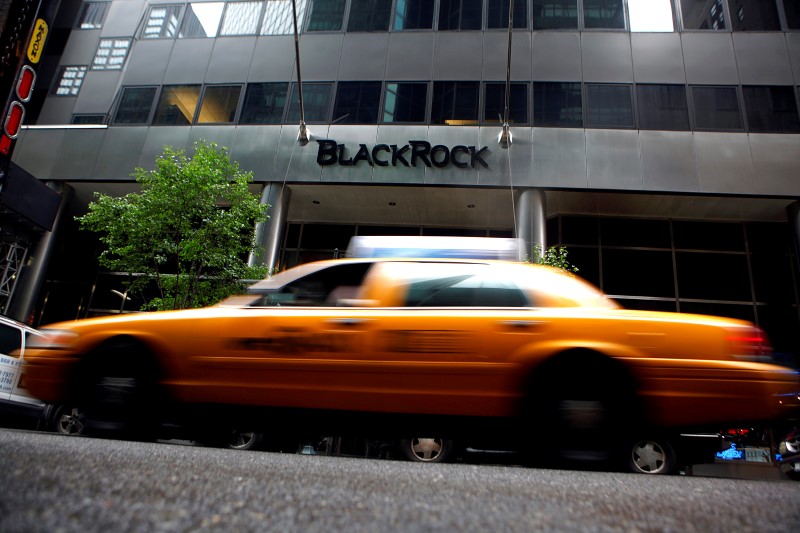By Michael Flaherty
(Reuters) - After years of support for companies that hand board seats to activists to avoid a bruising public fight, some of the world's largest institutional investors are pushing back.
BlackRock Inc (N:BLK), the world's largest asset manager, and Norges Bank Investment Management, Norway's $872 billion sovereign wealth fund are among the major funds resisting, encouraging companies to consult them before responding to an activist.
These investors argue that in certain cases, giving board seats to frustrated shareholders with a shorter-term investment horizon could jeopardize the company's long-term performance.
Activist investors, which Thomson Reuters data show launched a record 511 campaigns last year, are usually hedge funds that buy up a minority stake in a company they believe is undervalued, and push publicly for changes to boost the stock.
The most recent example of pushback against activist settlements involves U.S. retailer Chico's FAS (N:CHS) and Barington Capital, which sought to leverage its 1.6 percent stake to capture two board seats, including one for its founder.
The $100 million hedge fund ended its campaign on Friday, after realizing it could not win over enough institutional investor support for its nominees, according to people familiar with the matter.
In another case, BlackRock told the management team of Freeport-McMoRan Inc (N:FCX) that it was unhappy with its truce with billionaire investor Carl Icahn, which gave board seats to two of his young employees, the people familiar with the matter said.
The resistance is putting more pressure on activist hedge fund managers, who are struggling through volatile markets after years of index-beating performance.
"Some (institutional investors) feel that board seats should not be a bargaining chip, as this practice distorts the board's election process," said Ernst & Young in a summary of its survey of 50 large shareholders in March.
Board positions give activists the most influence, which is why they launch proxy fights to have directors voted in by shareholders at annual meetings.
To avoid that distraction, companies offer activists one or several board seats rather than take the battle all the way to a vote.
Since 2015, activists have secured 198 board seats at companies with market values above $500 million, according to data from Lazard Ltd (N:LAZ), with most of those seats gained through settlements. That is 30 percent more than the prior two full years combined.
Zach Oleksiuk, head of BlackRock's Americas corporate governance team, said companies should seek to periodically refresh their boards.
"That said, we remain skeptical of directors that are overly focused on a single issue or represent a subset of shareholders," Oleksiuk told Reuters.
Norway's sovereign wealth fund declined to comment, but people familiar with its strategy said the fund has been voicing its concerns that quick settlements with activists could jeopardize long term strategy.
BOARD INFLUENCE
As of June 15 of this year, companies have settled with activists 56 times in the United States, according to financial data firm FactSet. While it remains a historically high number, it marks a 10 percent drop from the same period of 2015. In another sign that companies are getting tougher, there were 92 proxy fights so far this year, according to last month's report by proxy firm Alliance Advisors, on pace to become the highest number since 2009. (Graphic: http://tmsnrt.rs/29B6lQ2)
Activists still prefer settlements over proxy fights and most multi-billion hedge funds are able to strike deals with companies.
"It takes away the cost and wasted time," Starboard Value CEO Jeffrey Smith told the Milken Institute Global Conference in May. Smith joined the board of Yahoo Inc . (O:YHOO) earlier this year following a settlement with the Internet company.
J C Penney Company Inc's (N:JCP) relationship with Pershing Square (NYSE:SQ) serves as an example of what can happen when a company adopts an activist's strategy that lacks support from the broader shareholder base.
Pershing's founder, William Ackman, joined the retailer's board in 2011 as part of a settlement and played a major role in orchestrating a turnaround plan that ultimately failed as sales plunged by 25 percent the following year.
Within the past year, however, activists' presence on company boards is coming under heavier scrutiny.
According to people familiar with the matter, Chico's new CEO, Shelley Broader, discussed her strategy with the company's largest shareholders shortly after she took over the post in December. She spoke again with some of them after Barington arrived, at which point they signaled their support for a fight with the hedge fund, the people said.
A Chico's spokeswoman declined to comment.
In the case of Freeport, lack of board experience of Icahn's two young lieutenants who represented him was the reason BlackRock did not support the miner's agreement with the investor, people familiar with the matter said.

Freeport and BlackRock declined to comment about the matter.